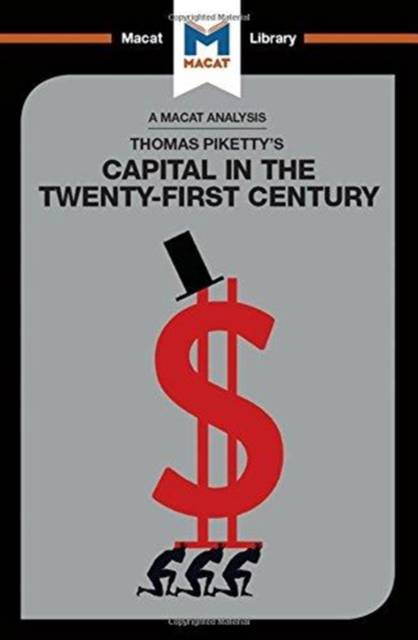
- Retrait gratuit dans votre magasin Club
- 7.000.000 titres dans notre catalogue
- Payer en toute sécurité
- Toujours un magasin près de chez vous
- Retrait gratuit dans votre magasin Club
- 7.000.000 titres dans notre catalogue
- Payer en toute sécurité
- Toujours un magasin près de chez vous
An Analysis of Thomas Piketty's Capital in the Twenty-First Century
Nick BrotenDescription
Thomas Piketty is a fine example of an evaluative thinker. In Capital in the Twenty-First Century, he not only provides detailed and sustained explanations of why he sees existing arguments relating to income and wealth distribution as flawed, but also gives us very detailed evaluations of the significance of a vast amount of data explaining why incomes is distributed in the ways it is.
As Piketty stresses, "the distribution question... deserves to be studied in a systematic and methodical fashion." This stress on evaluating the significance of data leads him to focus on the central evaluative questions, and look in turn at the acceptability, relevance, and adequacy of existing justifications for the unequal distribution of wealth. In doing so, Piketty applies his understanding of the data to answering the deeply important question of what political structures and what policies are necessary to move us towards a more equal society.
Piketty's evaluation of the data supports his argument that inequality cannot be depended on to reduce over time: indeed, without government intervention, it is highly likely to increase. In addition, he evaluates international data to argue that poor countries do not necessarily become less poor as a result of foreign investment. This strong emphasis on the interrogation of data, rather than building mathematical models that are divorced from data, is a defining feature of Piketty's work.
Spécifications
Parties prenantes
- Auteur(s) :
- Editeur:
Contenu
- Nombre de pages :
- 120
- Langue:
- Anglais
- Collection :
Caractéristiques
- EAN:
- 9781912302307
- Date de parution :
- 25-07-17
- Format:
- Livre relié
- Format numérique:
- Genaaid
- Dimensions :
- 135 mm x 203 mm
- Poids :
- 226 g







